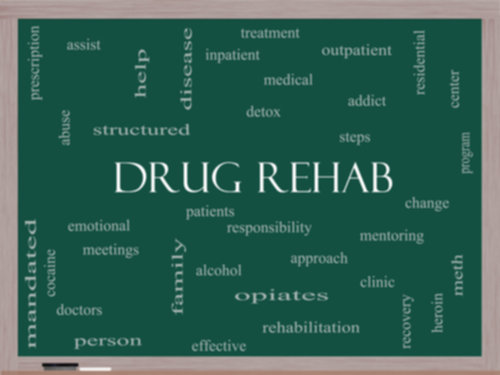 |
Inpatient drug rehab.Kicking a drug alcohol or gambling addiction can be the hardest thing ever.When it comes to getting the right recovery treatment, there is a reason that inpatient drug rehab and inpatient alcohol rehab are considered the “best possible option,” it is because they consistently been proven to be the most successful option for recovery. Considering how high the stakes are, can you afford to utilize anything other than the best option if you or someone you know struggles with drug or alcohol addiction? Look for the
best inpatient rehabs and make your decision accordingly.
There are different ways to beat a drug or alcohol addiction. Some people choose to go ‘cold turkey’, some opt for treatment at an outpatient rehab, and others choose one of the most proven and safest routes, an inpatient drug and alcohol rehab.
 |
Cold Turkey
Going ‘cold turkey’ simply means to stop using. When an individual chooses this option, they will go down an extremely difficult path and will have no medical or professional supervision. Some people can handle this and have very little problems, but for most, it is too much to handle.
Outpatient
The outpatient option does provide medical support for any necessary detox and for the period of recovery, then they will also provide a certain amount of emotional and psychological support during the day. This option may be good for people who have a family at home and cannot afford the time or even money to go to an inpatient rehab. They never offer the benefits that an impatient rehab has to offer, or the success rate.
Inpatient
Inpatient drug rehabs offer an overabundance of benefits that will no doubt help anyone trying to overcome a drug or alcohol addiction.Below are 10 benefits of inpatient drug rehab.
1: Structure
Inpatient drug rehabs offer structure that cannot be found elsewhere. Inpatient programs offer very little free time. This not only prevents the addict from figuring out how to obtain their choice substance, but also because less time is allowed for the patient to think about drugs, the less likely they will relapse.
2: 24-7 Support
Addicts attending an inpatient rehab will have professional support available 24 hours a day, 7 days a week. In early recovery this can make all the difference; most relapses happen early during recovery.
3: No Access to Drugs or Alcohol
An inpatient rehab means the individual will stay at the facility at all times, unless there are approved outings, in which they will be under constant supervision. People involved in outpatient rehab programs run the risk of relapsing because they return home in the evening and can access their choice substance. A person at an inpatient rehab will have no easy access to drugs or alcohol; this makes this option the safest for most people in early recovery.
4: Supervision
Many addicts will go through withdrawal, including mental withdrawal. This can be a dangerous and even life threatening time. Mental withdrawal can last for months. People experiencing mental withdrawal at an inpatient rehab will have constant medical supervision and counseling; this benefit is not only critical in some cases but provides much needed emotional support.
5: No Negative Influences
Inpatient drug rehabs often limit phone calls and do not allow, or closely monitor, any visitors. This prevents the smuggling of substances and any negative influence that a person outside the rehab may have on the addict.
6: Complete Focus on the Self
An inpatient drug rehab allows the individual to completely focus on their self. Thus, they are able to concentrate on their recovery while being completely away from any type of distractions or stress.
7: New Friendships
Everyone at an inpatient rehab is going through the same thing and have one goal in common, that being sobriety. These facilities can be great places for recovering addicts to develop strong friendships and new, much needed support.
8: Therapy Options
Most inpatient drug rehabs offer various alternative therapy options that will help people throughout recovery. Theses may include yoga, meditation, Tai Chi, Pilates, massage, and exercise routines. These are all great ways to release any stress, improve mental concentration, and the overall physical and mental health of a person. During early recovery this can make all the difference.
9: Balanced Diet
Inpatient rehabs understand the importance of nutrition. Ensuring that the individual will eat a balanced diet which will not only help the body get through the initial withdrawal, but will help to gain physical and mental strength throughout the entire recovery process.
10: Tools for Recovery
Inpatient rehabs will continue to support the individual after they have left the facility. They will have taught the recovering addict various tools to implement anytime they are have cravings or are at risk for relapsing. Inpatient rehabs will teach tools that can be used at anytime, anywhere, and can potentially save a person’s life.


No comments:
Post a Comment